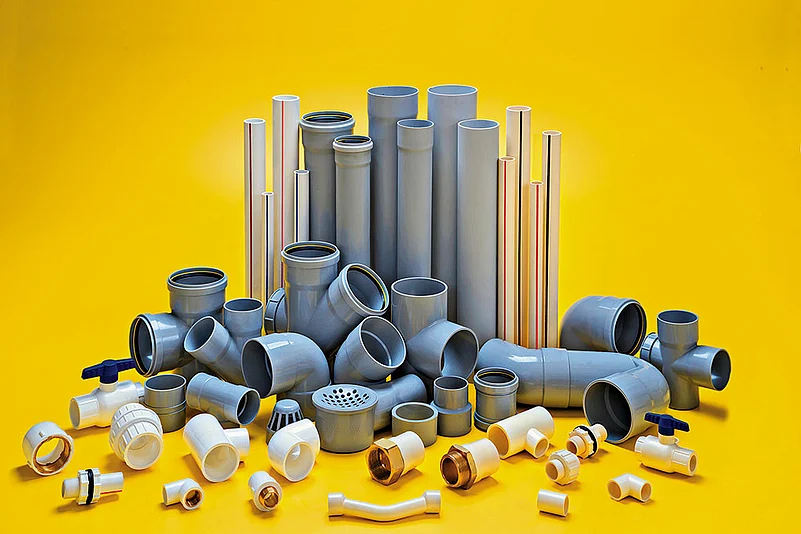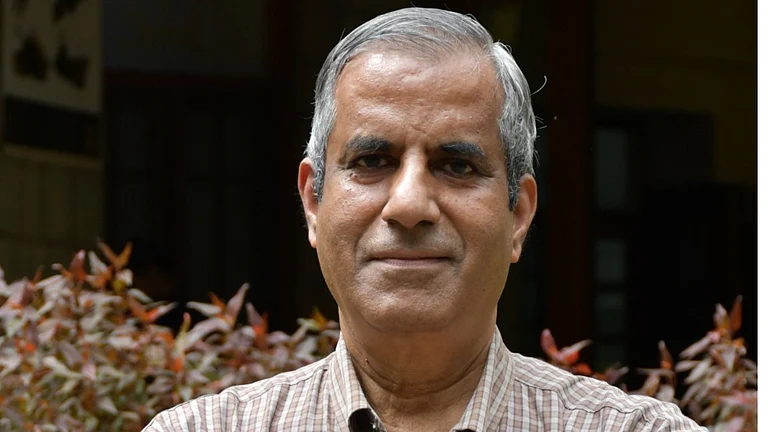How safe is the water we drink from our taps, supplied through pipes made of PVC? PVC, if not manufactured with high standards, contains high levels of residual vinyl chloride monomer (RVCM), a chemical that causes cancer. It leads to increased risk of liver angiosarcoma, hepatocellular carcinoma and other liver cancers, as well as brain and lung cancers, lymphoma and leukaemia.
What is worse is that India’s ambitious irrigation programmes, such as the Pradhan Mantri Krishi Sinchayee Yojana, the Accelerated Irrigation Benefits Programme, the Per Drop More Crop initiative and the Har Khet Ko Pani scheme, are all dependent on PVC.
As water flows through PVC pipes into farms, it pumps carcinogens into vegetables. These are consumed by humans, as is the drinking water supplied through pipes. It is here in the human body that the concentration of the carcinogens starts accumulating, as we eat more vegetables and other farm products and drink more water.
Right to Regulate
How do we get PVC that is not carcinogenic? It is possible to obtain safer PVC through an alternative manufacturing process, which is adopted by many Indian and international manufacturers. But if Indian and most international manufacturers have already adopted such a manufacturing process, why are we bothered by the effects of poor-quality PVC?
It is because, like most other intermediate materials such as steel, manmade fibre and nylon, we also import PVC from multiple countries. And when such products are imported from China or factories set up by the Chinese in places such as Thailand, Vietnam, Cambodia and so on, they are manufactured through cheaper processes, with scant regard to local environmental impact, churning out cheaper products.
How do we protect our citizens from such harmful imports and clean up our system? The Indian government has adopted a WTO-compliant mechanism called Quality Control Order (QCO). The mechanism ensures that products on which QCOs are imposed have to go through a rigorous testing and certification process. India has less than 750 products under QCOs. We have a long way to go to provide higher levels of protection and to clean up our supply chain. But it is a journey that is well begun.
Voices that are vociferously urging the re-examination of the QCO process are silent of similar regimes that are imposed on Indian exporters by other economies
However, India is already under enormous pressure from Europe, the US, UK and New Zealand to dismantle its QCO process as part of trade deals, branding QCO as a non-tariff trade barrier. This is strange given the fact that it was western nations that pioneered the concept of using quality as a trade barrier, starting from the ISO 9000 certification process, which ensured that MSMEs from developing countries could not get access to the European market, as the certification process was lengthy, cumbersome and prohibitively expensive, especially for smaller players.
In addition, every single product entering Europe needs to have the CE quality certification. It is similar with other Western nations. However, India appears to be rethinking imposing quality standards on imports due to pressure from western economies. As in other areas, we do not expect India to capitulate to such unfair and unwarranted pressures.
Debunking Cost Myths
The accusations against India are that QCOs introduce unnecessary delays and cost burdens on importers. The narrative, in this case, is that input costs of MSMEs will go up due to the increased cost of imports of products that are of higher quality. This appears to be dubious.
MSMEs are asking for QCOs in their attempt for a level-playing field. MSMEs in India have to comply with environmental laws, high cost of power, inspector raj, logistics, cost of land and everything in between. If India develops a soft corner for importers from China and the West while being deaf to the same demands from our MSMEs, it would be paradoxical. Domestic companies and importers need to have the same regulatory process.
Also, the argument that importing better quality products will increase costs for our MSMEs and make them uncompetitive is not a valid assumption. Let us say that better quality raw material is 5% more expensive. This raw material would usually not be more than 20% of the price of the final products sold, which would include the cost of logistics and sales and marketing. Thus, the impact on the final cost cannot be more than 5% of 20%, which is 1%. The market will surely be willing to pick up a 1% increase in prices for better-quality products.
It has become fashionable to bat for importers and vilify domestic players. It has become fashionable to brand domestic players as unproductive, handicapped and inefficient. It has become a norm to believe that imports and foreign companies are somehow superior in their processes, efficiencies and quality.
The fact is that the same Indian companies are fighting anti-dumping duties levied against them in Europe, the US, Japan, China and every other major economy, as those economies cannot believe that Indian manufacturers can provide high-quality products at low costs.
They are also going through the rigmarole of getting the quality certificate from each of these jurisdictions to be able to access these markets. And they are doing so, despite the handicaps imposed by our operating environment.
Voices that are vociferously urging for re-examination of the QCO process are silent on similar regimes imposed on Indian exporters by other economies. In addition, the shortcomings of the ecosystem are being portrayed as shortcomings of our domestic companies. India needs to double down on the QCO regime, not just to provide better quality, but also a level-playing field to domestic companies.
(The writer is president, C-DEP.org)











